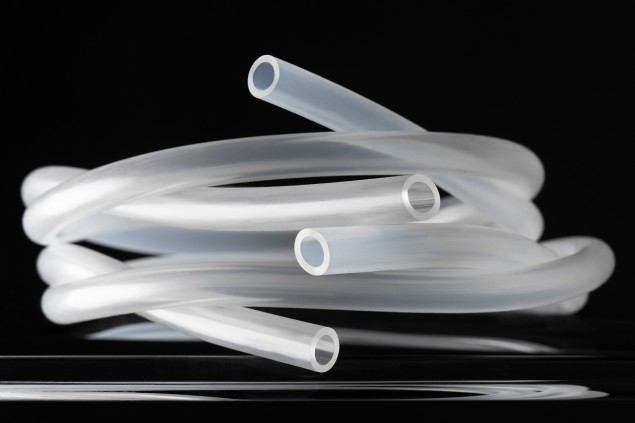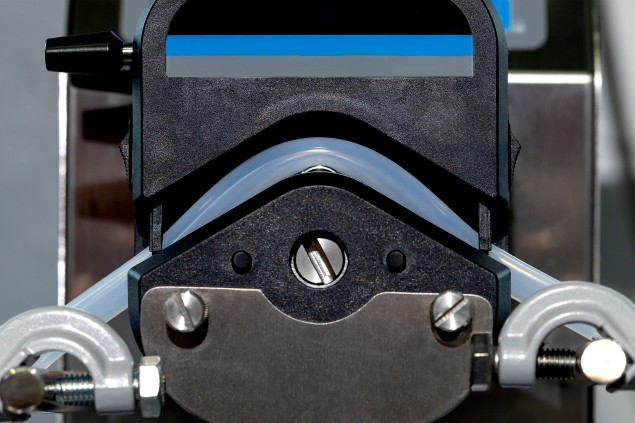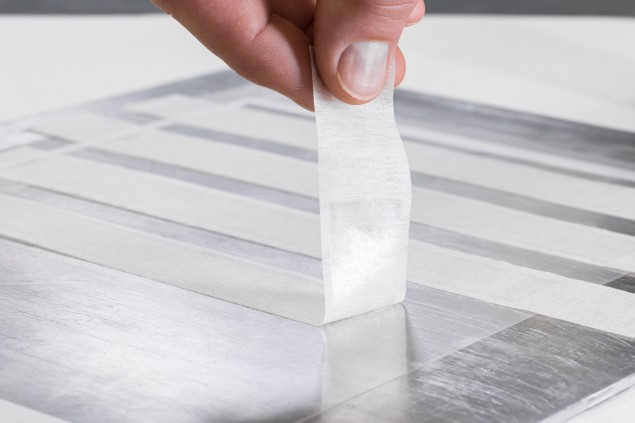COMPAMED 2024 - WACKER Presents Customized Silicone Rubber Grades for Medical Applications
Munich, Nov 07, 2024
At this year’s COMPAMED medical technology tradeshow, WACKER will be presenting customized silicone rubber grades that set new standards with their optimized properties in terms of haptics, tensile strength and adhesion. Products in the limelight are addition-curing solid silicones for the manufacture of medical and pharmaceutical tubing, for example for use in peristaltic pumps, heart-lung machines and infusion sets. SILPURAN® silicone adhesive gels are another highlight. They are suitable for coating wound dressings and fixation aids in order to attach portable sensors, dosing devices and wearables to the skin. In parallel with MEDICA, this year’s COMPAMED takes place in Düsseldorf, Germany, from November 11 to 14.

Resistant to bodily fluids, radiation and ozone, pleasant to the touch, insensitive to heat, mechanically robust and biocompatible: this property profile makes silicone elastomers a preferred material in medical technology. What’s more, WACKER is almost unrivaled in its ability to tailor silicones to specific applications and production pro-cesses. With its silicone specialties, the chemical group has been a leading solution provider for the medical technology and pharmaceu-tical industries for years.
At this year’s COMPAMED, WACKER will be showcasing three solid silicone grades that have already proven themselves many times over: ELASTOSIL® R plus 4305, ELASTOSIL® R plus 4360 and ELASTOSIL® R plus 4366. These addition-curing solid silicone rubbers are ideal for medical technology applications, as no peroxide byproducts are formed during curing. Tubes extruded from such silicones can be used in heart-lung machines, dialyzers, ventilators, infusion systems and catheters, for example. Silicone rubber tubing is also increasingly in demand for the production of drugs and vaccines, as this kind of tube is extremely compatible with mRNA and mRNA-based vaccines.
ELASTOSIL® R plus 4305 has excellent mechanical properties. Tubes or components made of this material are particularly durable and are characterized by high bursting strength. They are also compatible with mRNA technology. ELASTOSIL® R plus 4360 has particularly high rebound resilience and a low compression set. It is particularly suitable for the manufacture of durable tubing for peristaltic pumps.
Cured rubber products made from ELASTOSIL® R plus 4366 have particularly low-friction surfaces. Its coefficient of friction is 50 to 70 percent lower than that of comparable standard solid silicones. Tubes made from ELASTOSIL® R plus 4366 have an oil-free but extremely low-friction surface and are therefore easy to assemble, often even automatically. Thanks to its lower sliding friction, this product, too, is perfect for the manufacture of peristaltic tubes.

ELASTOSIL® LR 3078 – Ideal for Ventilation Masks and High-Quality 2K Medical Components
An innovative liquid silicone rubber for hard/soft combinations will be another center of attention at the show. ELASTOSIL® LR 3078 makes it possible to manufacture components consisting of a thermoplastic – such as polycarbonate, polysulfone, polyethersulfone or polyphenylsulfone – and a soft, elastic silicone component, as is often the case, for example, with ventilation and anesthesia masks. This type of mask has a soft cushion that adapts perfectly to the contours of the face, ensuring a tight fit. Soft and hard components must adhere firmly to each other and must not come loose.
ELASTOSIL® LR 3078 was especially developed for 2K injection-molding. It creates strong adherence to the thermoplastic during curing. Surface pretreatment is not necessary. Short cycle times are possible thanks to rapid curing. What’s more, ELASTOSIL® LR 3078 is characterized by low mold fouling. This supports the uninterrupted operation of the injection-molding machine.
Cured rubber products made from ELASTOSIL® LR 3078 achieve very good mechanical properties even without postcuring. In this way, components made of polycarbonate and other heat-sensitive plastics that do not tolerate excessively high processing temperatures can be manufactured, too. Cured rubber made of ELASTOSIL® LR 3078 is biocompatible and can be steam-sterilized at a temperature of 134 °C without impairing the mechanical properties of the elastomer or its good adhesion to the plastic. ELASTOSIL® LR 3078 is suitable for the manufacture of face and ventilation masks, but also for drug delivery systems and devices for minimally invasive procedures.

Designed for Wound Dressings and Wearables
Silicone adhesives are the third product group that WACKER will be showcasing at COMPAMED. This time, the focus is on SILPURAN® 2114 and SILPURAN® 2124. Both grades achieve a significantly higher adhesion than standard silicone adhesive gels. SILPURAN® 2114 achieves an adhesive strength of 3.5 Newtons per 2.5 cm2, while SILPURAN® 2124 achieves an impressive 6.0 Newtons. Both silicone adhesives are suitable for atraumatic wound dressings and can also be used for attaching sensors, dosing devices, colostomy bags and wearables to the skin. Despite their good adhesion, these fixation aids can be removed gently and painlessly.
Both SILPURAN® grades are 2K systems. They crosslink to form water-repellent cured rubber. This is breathable, thus making it possible to produce extremely skin-compatible fixation solutions. No residue remains on the skin, when the dressing or tape is removed. The gels also offer excellent adhesion values after repositioning. SILPURAN® 2114 and SILPURAN® 2124 can be combined with certain polyolefin release films. Such films can be removed without leaving any residue before being applied to the skin. The release force of the adhesives remains unchanged even after several months of storage.
Sneak Preview
At this year’s COMPAMED, WACKER is offering yet another highlight in the form of a sneak preview. A video will be shown that provides insights into a current research project at WACKER’s US site in Ann Arbor (Michigan). Silicone experts there are already work-ing on the next generation of silicone gels. These products adhere ten times more strongly than previous products. Going forward, such silicone adhesives can also be used to reliably attach heavy mobile measuring devices such as glucose sensors or electrocardiographs to the skin.
Visit WACKER in hall 8a, booth D28.
Contact

Wacker Chemie AG
Media Relations
Florian Degenhart
Tel. +49 89 6279-1601
Email florian.degenhart@wacker.com
Send Message
Download
Press Information
(PDF | 355 KB)


